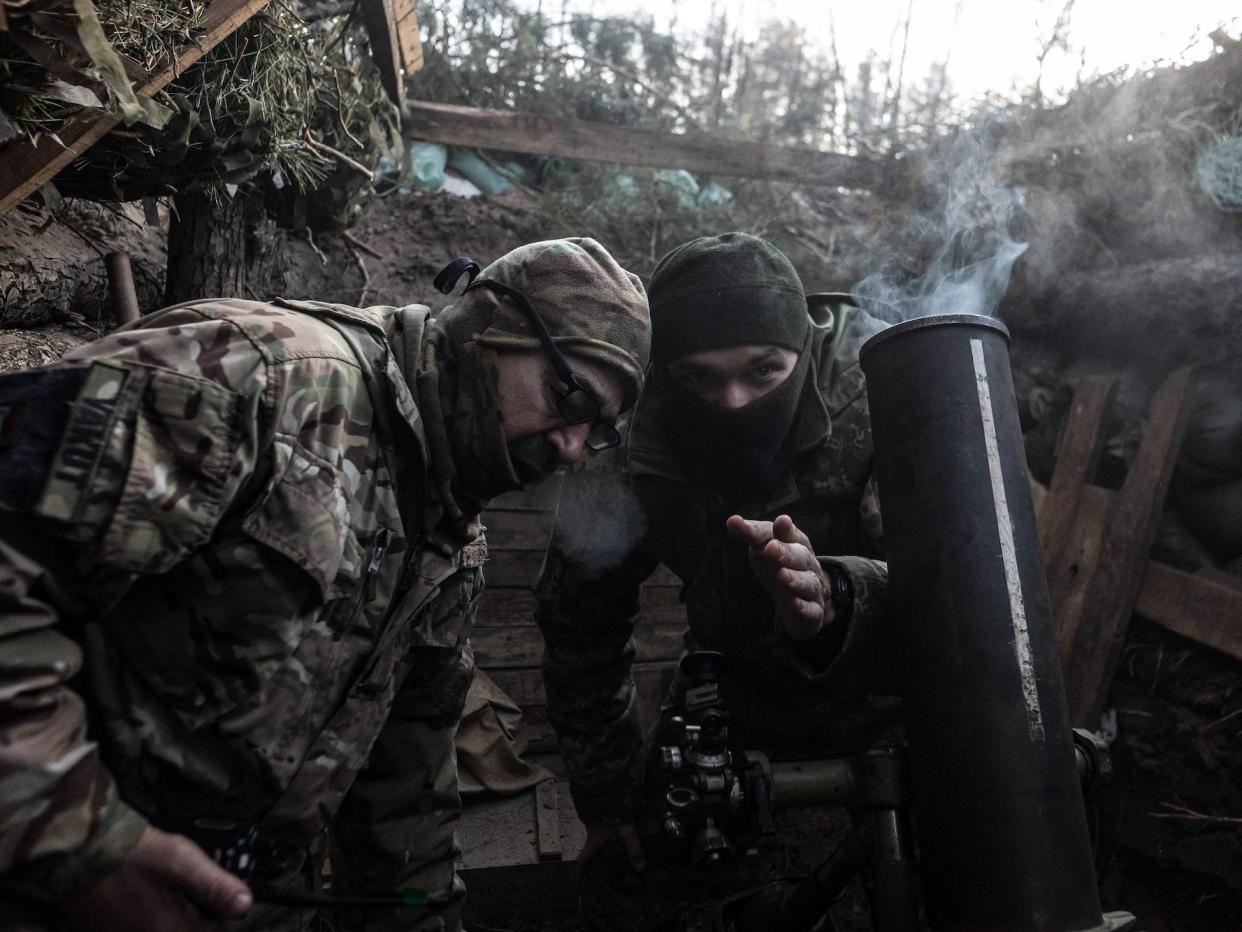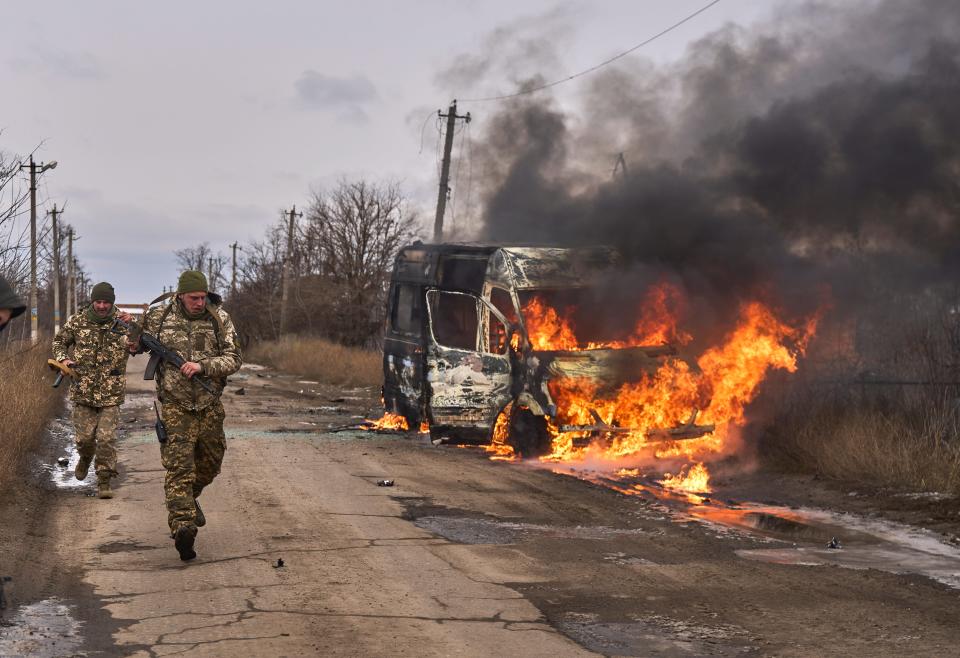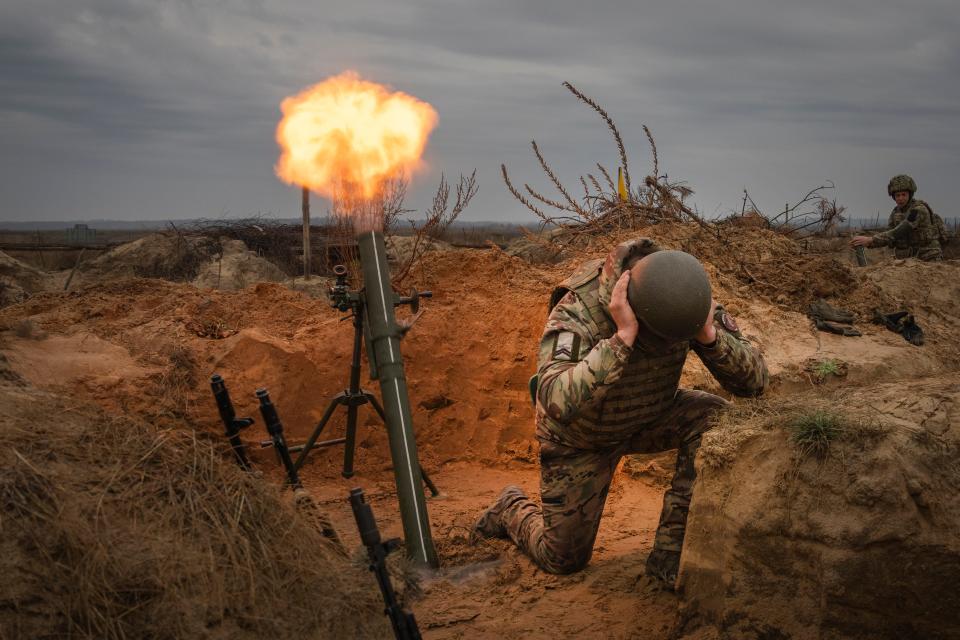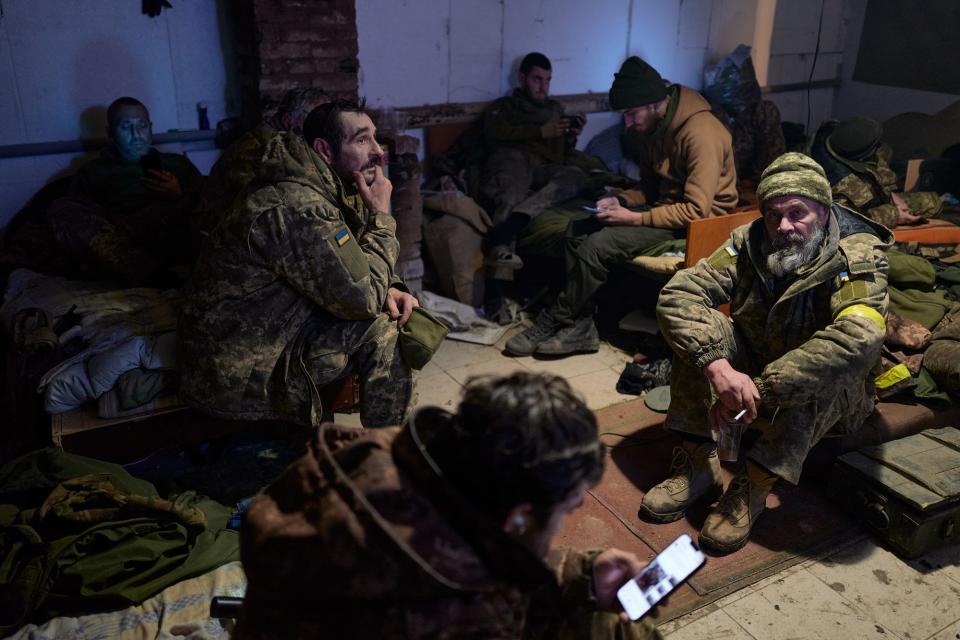Ukraine's soldiers don't have time to grieve and can't risk falling apart, psychotherapist says after visiting front lines

Ukrainian soldiers are forced to set aside grief on the battlefield, says psychotherapist Yulia Brockdorf.
Brockdorf visits Ukraine to provide counseling and aid. The war continues taking a mental toll on soldiers.
Prolonged service, PTSD, and lack of consistent aid exacerbate soldiers' mental health issues.
Ukrainian soldiers who have long been fighting on the front lines, facing the horrors of combat, are being forced to set aside their grief on the battlefield, said visiting psychotherapist Yulia Brockdorf.
"It layers on, these losses, these injuries, the ungrieved pain," Brockdorf told Business Insider.
The healthy processing of emotions and grief are pushed aside for the mission at hand, defending the nation from a relentless foe. "You need to set it aside because you need to focus and do your job because if you don't do your job, you will encounter more losses," she said, explaining how many Ukrainian soldiers she's worked with view their situation.
Brockdorf has made several visits to Ukraine since the Russians launched their full-scale invasion in February 2022 to provide counseling services and medical equipment to soldiers, as she is also the co-founder of DAWN, a nonprofit organization that has been supporting Ukraine. Her last visit was in March of this year.
'We just kind of go and do our thing'
Oftentimes, Brockdorf encountered seemingly desensitized attitudes toward death among soldiers defending Ukraine. "So frequently, it comes down to 'it's war, it happens,'" she said.
When grief can't be processed right away, it builds and becomes harder to deconstruct later on, Brockdorf said. Some soldiers are able to walk away from the war without trauma from witnessing losses, but others may experience post-traumatic stress disorder, which varies in severity.

A foreign volunteer helping defend Ukraine, speaking from their own experiences, said that losses in this war, the largest land war in Europe since World War II and a truly catastrophic human tragedy in terms of combat losses, are unavoidable and difficult to process when they happen.
"You lose people pretty much almost every week, not necessarily always from your company, but also from like neighboring companies, just people that you know," they told Business Insider. "In the grand scheme of things, our optempo is, I guess, quite high, so you don't really have the time to mourn people anyway, so we just kind of go and do our thing."
'A lot of anger inside me'
Dr. Vladislav Matrenitsky, a Kyiv-based psychotherapist, author, and founder of the Center for Psychotherapy, Psychosomatics and Psychedelic Medicine Expio, has worked with Ukrainian veterans and observed that some patients who experience PTSD have expressed behavior like hyper-vigilance, agitation, and anxiousness.
Many soldiers are left to process the trauma from the battlefield only once they're back home with their families, but this can put their relationships at risk if PTSD sets in and symptoms surface. This issue has long plagued soldiers returning from war.

"The problem is that not many of them understand why this happens, but they think, 'It's okay, it's just stress, and I will be okay with some time, with rest,'" Matrenitsky explained. "One of them told me, 'I have such a lot of anger inside me that in the night I go in the city to look for somebody to fight with.'"
For others, it's not anger, but terror. Some soldiers have reported nightmares and panic attacks. One told The Washington Post previously that he had nightmares of his tank commander who was burned alive while another dreamed of stepping on another mine and losing his other leg.
In addition to the growing number losses on the battlefield, Brockdorf added that the lack of consistent aid being sent to Ukraine also impacts soldiers' mental health. "The access to supplies, medical supplies, being armed, has direct impact on the suffering, experience and confidence and sense of feeling supported," she said.
Despite the trauma of war, troops stay on the line and often don't share their burdens.

Some of Ukraine's soldiers have been serving on the front lines for long stretches as Ukraine grapples with manpower shortages. Brockdorf says this prolonged length of service can also aggravate soldiers' feelings of exhaustion and abandonment.
As Mark Hertling, a former US Army general noted earlier this year in a discussion with CNN, staying on the battlefield for two and a half years "just takes an incredible account of fatigue, psychological damage, and the toughness of being in the trenches in the front lines will really be a morale factor."
And, indeed, that damage can be lasting, which is why Brockdorf says it's important to be there for Ukrainian soldiers.
"I think that's very important for Ukrainian defenders to know: that they are not forgotten," Brockdorf said. "When you live long enough and you only see around you bullets, drones, and dirt in those trenches, it's hard to know that somebody out there really remembers and really fights for you."
Ryan Pickrell contributed to this reporting.
Read the original article on Business Insider

